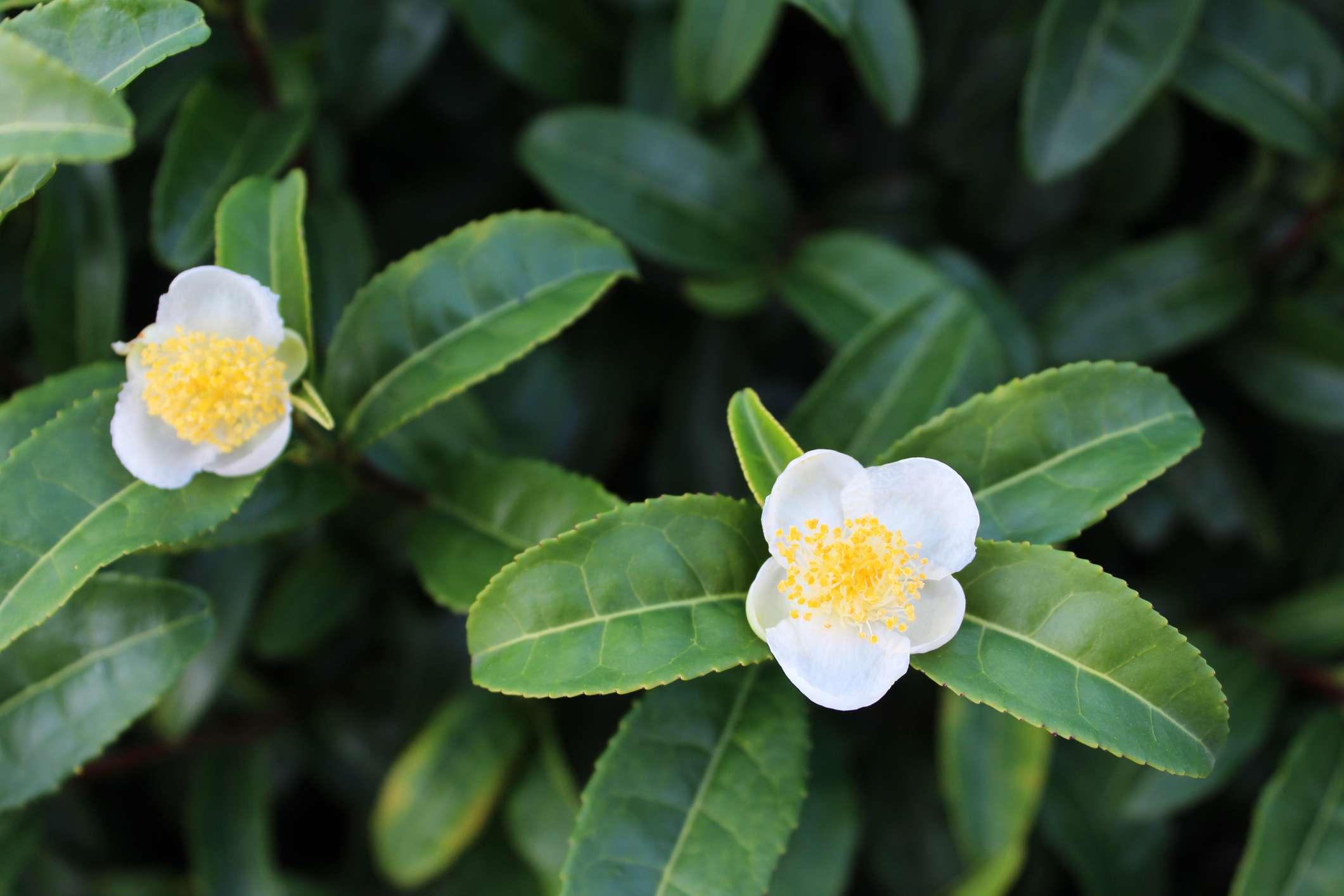The plant behind some of the world’s favorite beverages — tea!
🍃 Camellia sinensis

Common Name: Tea Plant
Hindi Name: Chai Pati ka Paudha
Sanskrit Name: Syamaparni
Botanical Name: Camellia sinensis
Family: Theaceae
Type: Evergreen shrub or small tree
🌿 Plant Description
- Height: 1–3 meters (pruned for easier harvest)
- Leaves: Shiny, dark green, oval, serrated edges
- Flowers: White with yellow centers, mildly fragrant
- Growth: Prefers hilly regions with tropical to subtropical climate
🍵 Tea Types from Camellia sinensis
All the main traditional teas come from this one plant, processed differently:
| Type of Tea | Processing Method | Caffeine |
|---|---|---|
| Green Tea | Steamed or pan-fired, unoxidized | Moderate |
| Black Tea | Fully oxidized | High |
| White Tea | Least processed, young leaves | Low |
| Oolong Tea | Partially oxidized | Moderate |
| Matcha | Powdered green tea leaves | High |
| Pu-erh Tea | Fermented and aged | Variable |
🔬 Key Active Compounds
- Catechins (EGCG) – Powerful antioxidants (especially in green tea)
- Theanine – Promotes calm and focus
- Caffeine – Natural stimulant
- Flavonoids & Polyphenols – Heart-healthy, anti-inflammatory
- Tannins – Astringent and antimicrobial
💊 Health Benefits
| Benefit Area | How It Helps |
|---|---|
| Brain | Boosts alertness, focus, memory (thanks to caffeine + L-theanine) |
| Heart | Improves cholesterol levels, blood pressure |
| Weight Loss | Increases metabolism, fat oxidation |
| Skin | Antioxidants slow aging, reduce UV damage |
| Diabetes | Helps regulate blood sugar |
| Immunity | Strengthens immune defense due to antioxidants |
| Cancer | EGCG may slow tumor growth (studies ongoing) |
🧘 Ayurvedic Insight
Though not native to classical Ayurvedic texts, tea is viewed in modern Ayurveda with the following considerations:
- Rasa (Taste): Bitter, Astringent
- Virya (Potency): Heating
- Effect on Doshas:
- Green Tea: Balances Kapha, may aggravate Vata if taken in excess
- Black Tea: Stimulating, can increase Pitta and Vata
⚠️ Precautions
- Too much caffeine can cause anxiety, insomnia, or acid reflux
- Iron absorption can be inhibited if tea is taken with meals
- People with sensitive stomachs or high Pitta should take tea in moderation
